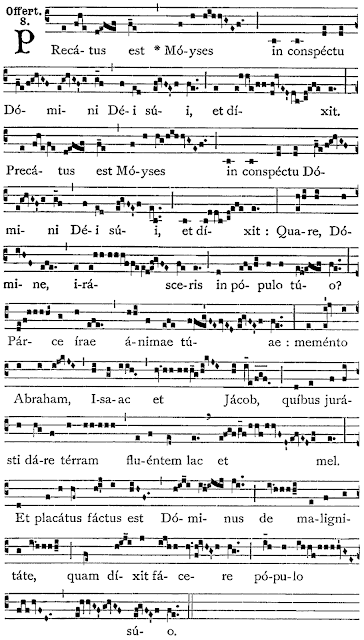As promised, here is another experimental set of “Simple English Propers” that are aimed at the average parish situation.
Download simple propers for the 24th Sunday in Ordinary Time, Year C.
The processes in use here were described in great detail last week. The same processes were applied to this weeks proper texts. Antiphon translations are taken from the Gregorian Missal, and psalm verses are taken from Douay Rheims, although slightly modified to reflect a more modern English.
We at the Chant Café would love to see a conversation about these settings spring up in the comment box. As I said before, these are “experimental”, and there is nothing that can advance an experiment like review and critique. Please don’t be shy. No one’s feelings will be hurt. We really want feedback from all walks. Many of the more “expert” opinions have already been discerned, but feedback from people who are considering the needs of their parishes who don’t sing the propers at all would be most valuable!
Music directors and schola directors–Ask yourself: “What would I do if I found myself in a parish that didn’t know what propers were, and had no exposure to chant in any form, whatsoever.” How would you bring them along? What would you recommend to a parish musician across town that would like to begin singing the propers at Mass? With no experience in chant, with virtually nothing but a humble interest? Where would suggest they start?
This is the sort of need that this project is seeking to address. Please share your thoughts, especially while we’re still in “experimental mode”!


